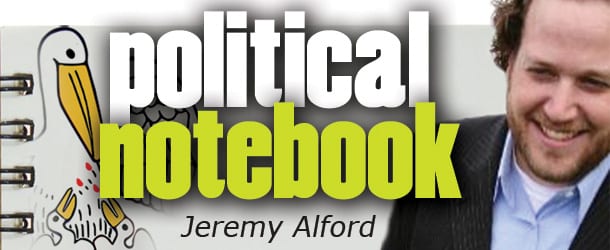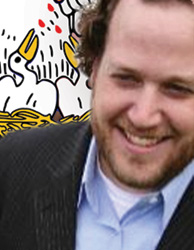Louisiana implemented the largest tax increase in the United States in 2016, according to a 50-state survey compiled by the National Conference of State Legislatures.
The report estimates the overall increase in Louisiana at $1.5 billion. The increase was driven by changes in the state sales tax structure that were approved by the Legislature and governor during last year’s regular session.
South Dakota was the closest to the Bayou State’s tax burden, with its net revenue boost weighing in at $107 million.
To put that into perspective, more than half of the total net increase seen nationally in 2016 came from Louisiana alone, based on the report’s math.
Nationwide, there was an estimated net tax increase of $2.3 billion last year, with Louisiana being one of only six states that implemented tax hikes. Five states, including Mississippi, actually decreased taxes through legislative action last year and 39 others made no changes at all.
EWE’s Party
A big birthday party is being planned for former Gov. Edwin Edwards. But it’s going to cost you.
Tickets are said to be somewhere in the neighborhood of $250, with all of the proceeds benefitting the birthday boy.
The event, scheduled for Aug. 12, will coincide with the paperback release of the EWE bio penned by Leo Honeycutt.
The other Gov. Edwards — sitting Gov. John Bel Edwards — has received his invitation.
Mayoral Election Notes
— Last month, Nic Hunter became the first Republican ever elected mayor in Lake Charles. At age 33, he also became the second youngest politician ever elevated to the position. It was a victory that still has GOP diehards crowing. Hunter and his campaign team managed to flip an important Louisiana city that supported both Hillary Clinton and Foster Campbell, two Democrats, in 2016.
— State Rep. Greg Cromer announced his intentions to run for mayor of Slidell next year. Facing an exit due to term limits, Cromer, a Republican, served two terms on the Slidell City Council before moving to the Capitol. If he is ultimately successful, that would trigger yet another special legislative election in the Legislature this term, in House District 90.
Rural Jobs Bill Unites Unlikely Allies
In what could be described as an exercise in star-crossed politics, the left-leaning Louisiana Budget Project and the right-leaning Americans For Prosperity joined forces to oppose the creation of a rural jobs tax credit.
Special interests and lawmakers have become more protective in recent years about the use of taxpayer money for such incentives as Louisiana’s government struggles through one budget shortfall after another.
The rural jobs tax credit in HB 641 by Rep. Jack McFarland, R-Jonesboro, has already cleared the committee process in the lower chamber and was expected to be brought to a floor vote.
The legislation allows the Revenue Dept. to award the tax credits that can be claimed against future premium tax liabilities by the participating investors, lenders and insurance companies. Those entities would then invest in growth funds that are supposed to create rural jobs in small businesses with 50 or fewer employees.
McFarland argued during the bill’s initial hearing that rural banks have scaled back on making loans in recent years due to federal regulations, which in turn has cut rural companies off from access to capital.
Agriculture Commissioner Mike Strain supports the proposed program. But it fell under fire by the Louisiana Budget Project, an advocacy group that focuses on government funding, and Americans For Prosperity, a national conservative outfit with a chapter in Louisiana.
“We should be looking to end many of these tax credit programs and instead focus on comprehensive tax reform,” said AFP state director John Kay.
Based on an analysis from the Legislative Fiscal Office, the total potential revenue loss to the state could be $30 million per fiscal year, beginning in 2023.
Special Session Timing Unclear
The possibility of a June special session still weighs heavily on the minds of those working in the Governor’s Office. It would be the fourth special session called by Gov. John Bel Edwards since his swearing in ceremony in January, 2016.
There may be a special session if lawmakers fail to produce a budget in the regular session that adjourns on June 8. The House and Senate are currently negotiating the budget bill, for which the bodies have drastically different visions.
The Legislature’s failure to pass a balanced budget wouldn’t be unprecedented. But it’s a rare occurrence. If it does happen, lawmakers would have to begin their work again immediately.
What’s more likely, according to a spokesperson for the governor, is a special session being called at a later date to address a $1.3-billion hole slated for next year due to the expiration of temporary taxes.
Edwards, as well as legislative leaders, are doubtful that enough new revenue can be created in the regular session. The House, in particular, has failed to come to an agreement on several major tax policies this session.
That said, a fourth special session for this term will probably still be required — eventually — to tackle the state’s temporary taxes that fall off the books on July 1, 2018.
Whether that means a special session is on tap for this fall, which appears to be favored by legislative leaders, or for next year, when the so-called fiscal cliff will be much closer, now becomes the new focus of speculation around the capitol.
Of course, lawmakers might agree to a budget in the regular session, which would in turn require an immediate special session convening in mid-June.
No Extra Money For State
Lawmakers, who were hoping for an uptick in tax collections just in time for the final stretch of the regular session, were sorely disappointed earlier this month after the Revenue Estimating Conference met.
The REC panel, which is charged with determining how much money the state has to spend, downgraded the revenue estimate for the next fiscal year by roughly $27 million. Lawmakers consider that to be a modest decrease for a $29 billion budget.
Nonetheless, it’s unknown whether lawmakers will have to address that loss as budget negotiations continue. There was no change in the forecast for the current fiscal year, which ends on June 30. State officials admitted that a dip might eventually surface.
Dems Ponder Pro-Stokes PAC
With a field of only Republican candidates angling for treasurer and no marketable names surfacing from the other side, plans are quietly coming together for a possible political action committee, funded primarily by Democrats, to support state Rep. Julie Stokes, R-Kenner.
But nothing is etched in stone quite yet.
The sales pitch would be straightforward, those involved say. Democrats could end up with a Republican who would mimic the brand U.S. Sen. John Kennedy put in place, which was geared towards criticizing whoever was governor. Or they could back a candidate who has little to no record of throwing political bombs.
The latter would be Stokes. And the protection referenced in the sales pitch would be for Gov. John Bel Edwards, who has proven himself a prolific fundraiser, if nothing else.
The idea mirrors the emerging strategy of the Stokes campaign, which seems to be banking on crossover appeal.
During the recent treasurer forum hosted by the Louisiana Assoc. of Chamber of Commerce Executives, Stokes spent some time talking about “working across party lines” and how party wouldn’t guide her decision-making.
The possibility of a PAC is certainly not an encouraging sign for those hoping a big-name Democrat gets in the contest.
LaPolitics has cycled through a number of personalities who could run statewide, but none of the Democrats interviewed seem eager to bite.
New Orleans attorney Derrick Edwards is in the race, but local politicos consider it a true challenge for him to solidify the Crescent City and to raise enough money to compete elsewhere.
But all hope is not lost for Democrats. Qualifying doesn’t commence until July 12, and recruitment efforts are underway.
Republicans running include Angele Davis of Baton Rouge, state Rep. John Schroder of Covington and state Sen. Neil Riser of Columbia.
Supremes To GOP: No
The U.S. Supreme Court has stuck a fork in the fundraising challenge filed by the Louisiana Republican Party. Justices affirmed an earlier ruling from a three-judge court on a loose framework for the use of certain donations raised by state and local parties.
Attorneys for the state party argued that the current system prohibits parties from using state-regulated contributions for traditional party activities, even if the activities involve communications that aren’t coordinated by a candidate.
GOP diehards had hoped they’d get a decision in their favor; such a decision would have lifted this prohibition and paved the way for unlimited donations, such as those super PACs presently enjoy.
Speculation On PSC Race
In the wake of news that Public Service Commissioner Scott Angelle of Breaux Bridge was being vetted for a position with the Interior Department’s Bureau of Ocean Energy Management, politicos have turned their attention to the possibility of his seat opening up on the PSC.
The District 2 seat stretches from Lafayette to Baton Rouge, and includes a portion of the central coastline in the Terrebonne-Lafourche region.
If Angelle does indeed get an appointment from the Trump Administration, he would then have to resign his seat on or before June 14 for a special election to be added to the fall ballot; that’s according to the Secretary of State’s Office.
If there’s a move after that date, it could turn into either a stand-alone special election or a long haul to the regularly scheduled election in 2018. Either way, the governor would be able to appoint a temporary replacement until an election could be held.
Speculation last churned over the PSC seat in 2016, when Angelle made an unsuccessful bid for Congress. Dr. Craig C. Greene of Baton Rouge, an orthopaedic surgeon, and former state Rep. Joe Harrison of Napoleonville were angling hard for the job then. Also thrown into the mix at the time were former Baton Rouge Metro Councilman Joel Boe and state Rep. Julie Emerson, R-Carencro, who has since cultivated deeper roots in the region as the former transition head for Congressman Clay Higgins.
A name to keep in play for the PSC seat this year is Senate Natural Resources Chairman Norby Chabert, R-Houma, who lives in the southern end of the PSC district. Local politicos have been trying to get Chabert to consider running for the seat over the past few years.
From the same area, former Rep. Lenar Whitney has been mentioned as a possible candidate.
Of course, this may all be fruitless speculation, unless Angelle has been offered a federal post — and he decides to take it.
They Said It
“In other parts of the world, they drive on the left side of the road. In Louisiana, we drive on what is left of the road.”
— Department of Transportation and Development Secretary Shawn Wilson
“There are only bits and pieces of bodies coming out of here.”
— Rep. Chris Broadwater, R-Hammond, on the process for bills this session in the House Ways and Means Committee
“This was just the camel’s nose under the tent.”
— Rep. Scott Simon, R-Abita Springs, on the state allowing medicinal applications of marijuana.
For more Louisiana political news, visit www.LaPolitics.com or follow Jeremy Alford on Twitter @LaPoliticsNow.














Comments are closed.